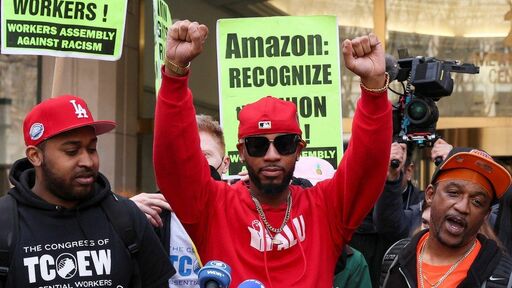On identity politics – Jay Caspian Kang interviewing philosopher Olúfẹ́mi O. Táíwò in NYT:
‘Is the type of identity politics you’ve critiqued in this book an impediment to constructive political culture? And if so, what should we do about it?
Yes, it is an impediment. But it’s not as though there’s ever been a favorable political or social environment for this kind of political culture. Every time this kind of political culture has been built, it’s been in opposition to the cultural, political and capitalist status quo. The anticolonial movements of the post-WWII years, the anti-apartheid movement — they emerged in unfavorable environments, but they were still built, and they were built in the kinds of organizations that were tried and true examples of constructive politics, like unions. The boss may want to only pay some of us this and pay the rest of us that, but we’re going to bargain collectively, and we’re going to build a space where we struggle together for collective goals. That’s the kind of thing that can build solidarity across political differences.
What are some examples of things that excite you in that line of thinking?
Definitely the wave of unionization at Amazon and Starbucks. If there were more of these kinds of movements in tech, things like the Alphabet Workers Union, that would be even more promising. Formations like the Debt Collective, that are uniting people based on being indebted. I think of tenants’ activism that really accelerated during the pandemic, particularly in places like Kansas City, Los Angeles — all of those things are really promising kinds of mobilization. And the more we get together, the better we can get together.’
Read the interview here.
When unionization is the best answer to all kinds of undesirable inequalities – I’m in favor of unionization and I believe this analysis is accurate – we are back in the 19th century.
All the talk about identity politics and ‘elite capture’ boils down to this: unionization.
I would recommend reading Balzac on richness and human behavior.
And yes, being Asian and being upper middle class in Boston is not the same as being Asian without papers and working in a massage parlor in the same city or somewhere else in the US.
It’s a bit sad that we have to point all this out, that the obvious still needs to be stated.
So class first, then race.
Fair enough.
Let’s hope that this class struggle will end better than the last one. I don’t have the feeling that there is much enthusiasm for studying the tragic history of socialism among those who are hoping for a revolution.
Or maybe that’s the thing, all they want is unionization. No revolution, just a pay rise and debt forgiveness. Well, that’s how revolutions can start.
Amazon will teach us a lot on this matter.
